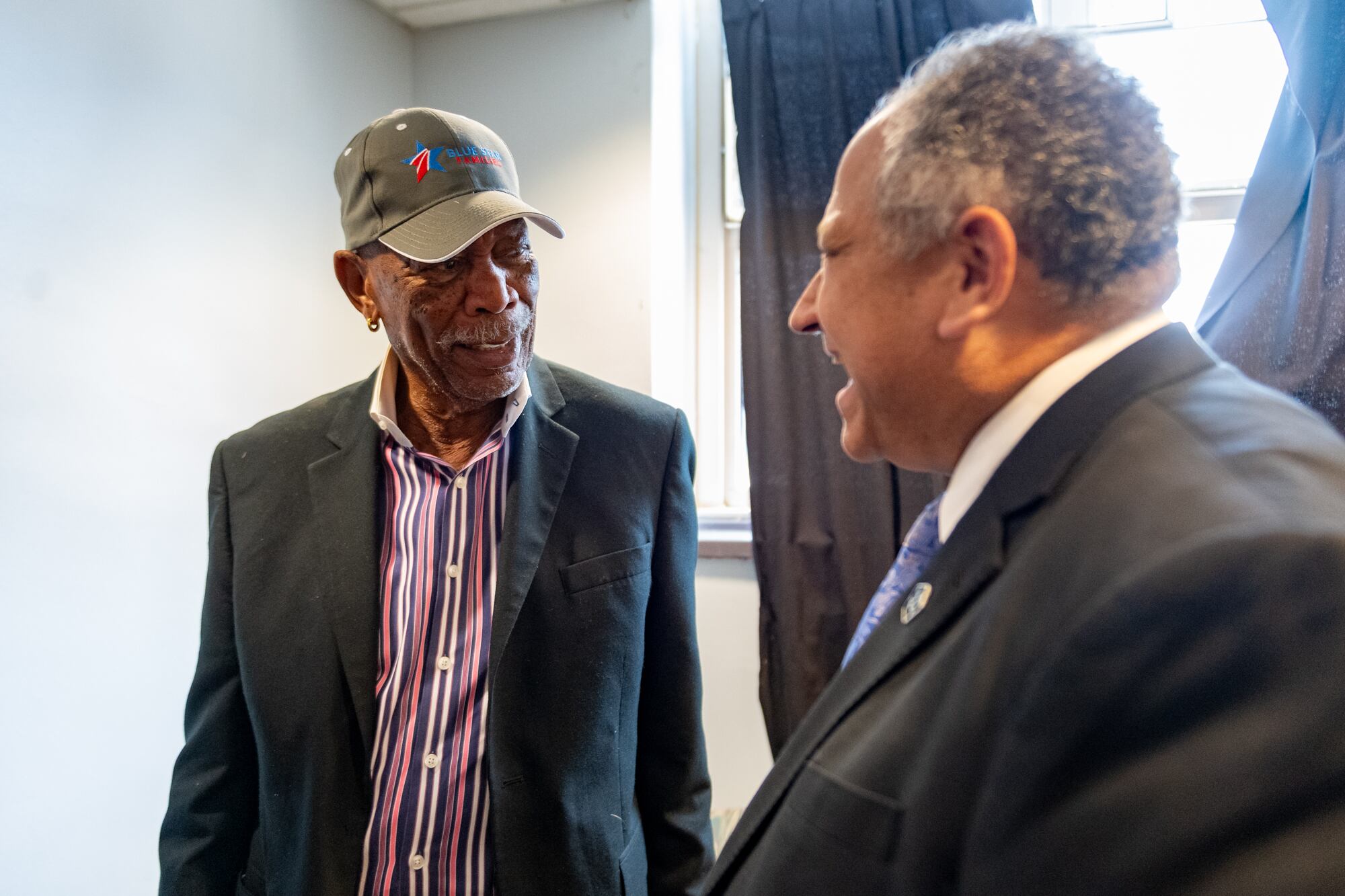Tuskegee Airmen and Montford Point Marines joined Department of Defense leaders and lawmakers at the Pentagon this week to commemorate the 75th anniversary of President Harry S. Truman’s signing of Executive Order 9981.
Signed into law on July 26th, 1948, the order, which mandated the desegregation of the U.S. military, stated “there shall be equality of treatment and opportunity for all persons in the armed services without regard to race, color, religion or national origin.” Another order, which included the full integration of the federal workforce, was also signed that day.
As history shows, the landmark decision did not yield change overnight. In fact, it took many of the services years to comply. It did, however, put the military at the front of a national movement for equality and set the armed forces on a path toward addressing diversity, equity and inclusion issues — a matter still being grappled with today.
“As we reflect on the tremendous progress that our country has made over the past 75 years, we recommit ourselves to continue the noble work of all those who broke down barriers, fought prejudice, and worked to ensure that America’s peerless military embodies the democratic ideals that it so proudly defends,” Secretary of Defense Lloyd Austin said in a statement commemorating the anniversary.
Truman’s order was initially met with resistance by many of the service leaders, including Secretary of the Army Kenneth C. Royall, who was forced to retire in 1949 for refusing to desegregate the service.
Integrated units in the American armed forces that predated the order, meanwhile, were often subject to discrimination and were many times re-segregated after operational needs were met, Dr. Terri A. Dickerson, the Coast Guard’s director of civil rights, explained during the event.
Black service members and other men and women of color — including Native Americans, Latinos and Asian Americans — have fought in every single American conflict dating back to the American Revolution. Buffalo Soldiers, Harlem Hellfighters, Tuskegee Airmen and Montford Point Marines are merely some of the Black units who blazed a trail for other marginalized troops.
During World War II alone, more than one million Black Americans served bravely to defeat fascism, Austin said, adding that today, some 44 percent of active duty troops are Americans of color.
Manpower needs during the Korean War accelerated integration measures. And by 1954, the Army’s deactivation of the 94th Engineer Battalion signaled the service’s full integration, according to an Army release.
Racial issues within the military persisted, however, and remain a prevalent conversation today as service leaders look to address efforts — including at the service academies — aimed at diversifying the armed forces.
The topic recently arose during a congressional hearing for Air Force Chief of Staff Gen. CQ Brown, the first Black person to serve as a service chief in U.S. history, who is nominated to be the next chairman of the Joint Chiefs of Staff.
“Despite this growing diversity, service members of color still face unacceptable barriers,” President Joe Biden said in a statement, citing underrepresentation in positions of senior leadership and bias in the military justice system.
“[The order] didn’t heal our country’s original sins of slavery and systemic racism, but it did mark an inflection point. It was progress,” Secretary of Veterans Affairs Denis McDonough told a crowd observing the anniversary at Washington’s Howard University, a renowned HBCU that has produced innumerable military veterans.

The event at Howard, hosted by Blue Star Families in partnership with the Chamberlain Project, featured discussions by an array of military, education and community leaders — including McDonough, actor and Air Force veteran Morgan Freeman and Navy Secretary Carlos Del Toro — on the history of Executive Order 9981 and the pathways toward an equal future.
“We recognize diversity in our nation as our greatest strength, not a weakness,” Freeman told the crowd. “I’m thankful to the veterans, service members, historians, legal scholars, educators and civil rights leaders convened here today. [They] all play an integral part in telling their stories to paint a true picture of our history and inspire young people to be all they can be.”
The commemoration of Executive Order 9981 comes amid other significant military milestones this year, including the 75th anniversary of the Women’s Armed Services Integration Act of 1948 and the 50th anniversary of the U.S. military adopting an all-volunteer force.
Today, there are nearly 60,000 active duty Black service members in the Navy, nearly 19,000 in the Marine Corps and just over 48,000 in the Air Force and Space Force, according to Pentagon spokesperson Robert Ditchey II. Just over 97,000 active duty Black troops are serving in the Army as of October 31st, 2022, he added. These numbers do not include service members who identify as mixed race or unknown.
“The United States of America, the strongest and most diverse country on the face of the planet, is strongest when it draws on all that strength and all those talents of all our people,” McDonough said.
Sergeant Major of the Army Michael A. Grinston, who is from a mixed-race family, echoed those sentiments at the Pentagon.
“At the end of the day, I only want to be remembered as a warrior, a father, a son, an American.”
Jonathan is a staff writer and editor of the Early Bird Brief newsletter for Military Times. Follow him on Twitter @lehrfeld_media
J.D. Simkins is the executive editor of Military Times and Defense News, and a Marine Corps veteran of the Iraq War.





